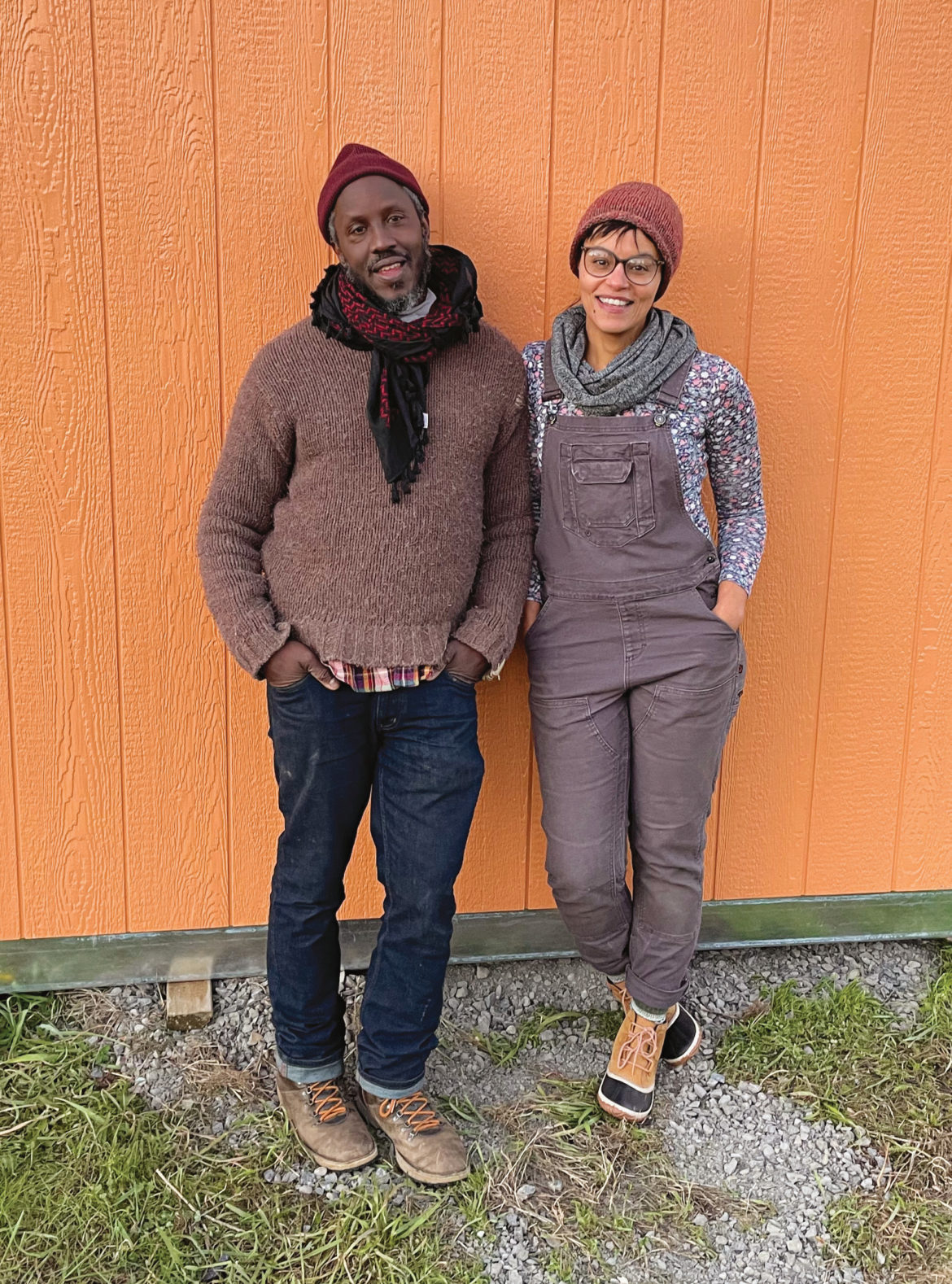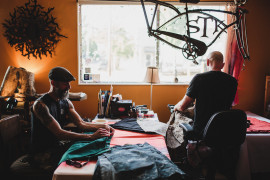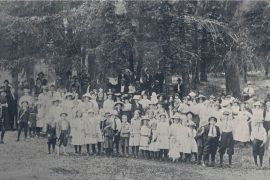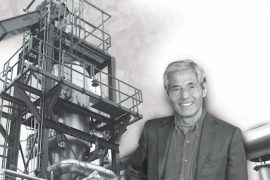Brew Dr. writes a new prescription—uplifting Black farmers with their new yerba mate
Written by Charles Rigby
MATT THOMAS WAS a student at University of Oregon in 2002 when he became mystified with not being able to get good tea in coffee shops. He wrote a business plan to address this problem.
“If you wanted tea in a coffee shop you had few options,” said Thomas. “I fell in love with tea in the process of writing the biz plan.”
After graduating from UO in 2002, Thomas waded through uninspiring jobs before he returned to his business plan and raised $45,000 from friends and family for the first Townshend’s Tea Company teahouse in Portland. “For a long time I was unsure whether I could live off of tips,” he recalled.
It wasn’t until 2007, when he was able to get out from behind the counter and focus on opening a second venue, this one in Bend.” The Bend Townshend’s Tea opened in 2008. “I had about seven credit cards and $5,000 on each.
Thomas made it back to Portland in the summer of 2008 and started to make kombucha, which eventually would become the widely distributed brand, Brew Dr. The segue into kombucha made sense, Thomas said, “because it’s tea and fermented, and it turned out the work we had done to make tea blends translated well into kombucha flavors.”
In 2009, people took to kombucha at his two teahouses, and Thomas saw opportunity in this new consumer demand. He leased the basement of the Portland teahouse, set up a table and started fermenting tea in buckets. In the teahouses, this new brew was artlessly served from buckets, too. Quickly, Thomas and his crew decided they should bottle the new brew for increasing demand and retail sales.

In 2009, Whole Foods gave Brew Dr. a new lifeline with a local producer loan. “That got us out of the basement and into the brewing facility. Soon, Thomas realized, Brew Dr. was the third largest kombucha maker in the world. He digested that information and did what any entrepreneur would do and signed up for as much debt as he could to expand his kombucha operations, ending in a 50,000 square-foot facility in Tualatin that produces 700,000 bottles per week.
What began with credit cards and sweat equity transformed into a B corp, or benefit corporation, a business structure that values environmental and social ethics as much as profits. He looked to the pioneers in business that had blazed the trail for better corporate governance, social equity and gentler environmental impact—Patagonia, New Seasons Market and Hopworks Urban Brewery. “Care for our environment and our communities was already part of who I was,” Thomas said. “We wanted to cement policies and begin measuring and offsetting our carbon footprint.”
After the murder of George Floyd, “there was an awakening” Thomas said, and the company decided to switch from donating to the organization 1% for The Planet to local BIPOC farmers—Black Futures Farm and Mudbone Grown. A percentage of sales of Uplift, Brew Dr.’s new yerba mate brand, helps fund these farmers. Thomas estimates that annually, sales of Uplift will contribute about $20,000 to small nonprofits of the BIPOC community.
While not an enormous tranche, these funds helped Black Futures Farm build a greenhouse sooner than they would have been able to, not unlike Whole Foods’ seed grant for Brew Dr.’s expansion.









